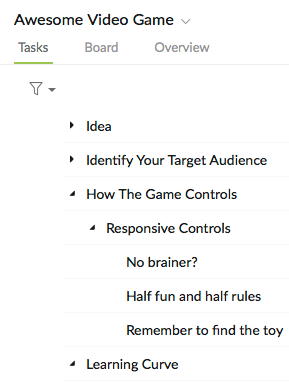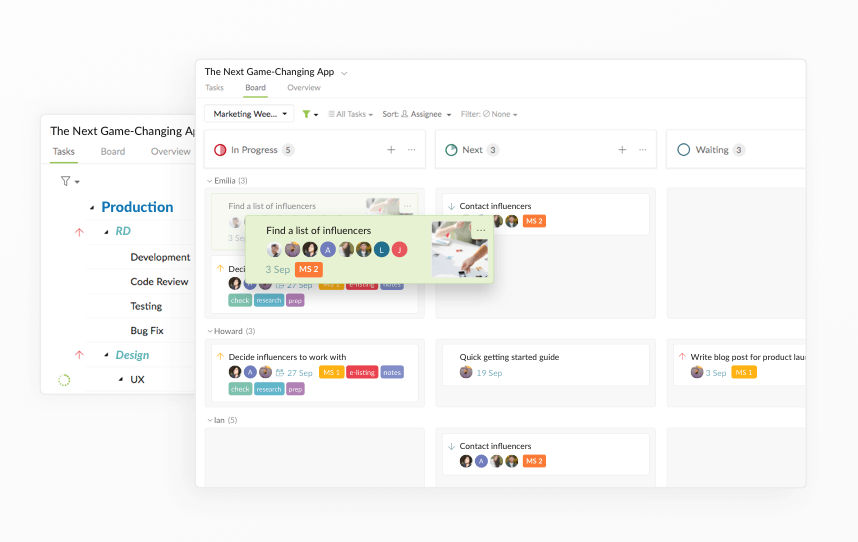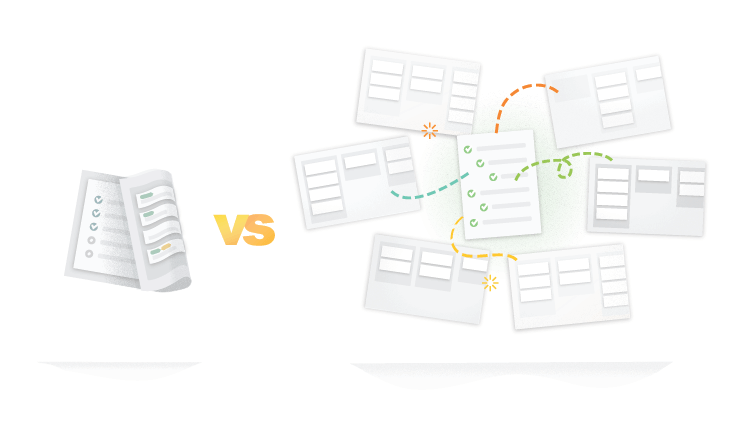workstyle · Aug 10, 2018
To Do List and Kanban: What Project Management Did Wrong

Be it teams, agencies, or companies, there must have been a time when they looked for project management tools or softwares, tried each one of them, and asked all sorts of questions about them, hoping to choose the best project management software to accomplish their next big, amazing projects.
Unfortunately, there is no one-for-all, perfect solution. Just the right one to help you boost your productivity.
What is the Right Project Management Software for You?
We had many users who told us they tried tens or even hundreds of apps they could find out there with no success, not until they met Quire; We also had to say goodbye to one who just cannot get past the digital barrier and eventually returned to good old-fashioned pen and paper.
So what exactly is the right project management software? What is the one approach that works for you?
For us, after years of developing Quire and talking to our users, we believe the right approach is one that bring your dreams to life via planning in “Nested to do list” and doing in “Kanban board.”
The “To Do List” Method: A Simple, Yet Flat List Without Structure
A “to do list” is a traditional, straightforward way for you to remember your ideas, notes and to-dos, and do them orderly.
It is just like in the old days, you would use pen and paper to jot down to-dos in a bulleted or numbered list. It is what most users are familiar with, what comes natural to them.
That said, you can easily end up with a long, and flat list of tasks that are equally important, thus making it difficult to show their relationships.

The “Nested To Do List”: A Hierarchical List with Context
We took “to do list” to the next level, and we call it the “nested to do list”.
For big, challenging projects, you can break down ideas into chunks, and further into small, bite-sized pieces. What you then get is a well-structured, well-planned hierarchical actionable list of tasks and subtasks.
For example, you want to make an awesome video game, possibly the next Lineage M.

When each item has been divided into smaller and smaller steps, you have a nicely laid-out plan ready for action.
“Nested To Do List” and “Kanban Board”: The Perfect Duo
Unfortunately, “nested to do list” is not perfect on its own — especially for teams collaborating on a challenging project — when it comes to “execution”. Thus we brought “Kanban board” on board to complement it.
Dating back to traditional whiteboard with post-its, Kanban is two words in Japanese: 看 (kan) and 板 (ban). It can be translated into “a board to look at.”
Kanban board is visual. It makes it easy to manage tasks, and focus on completing them in a smooth workflow. In other words, it makes up the “execution” stage lacking in “Nested to do list.”
According to Harvard Business Review, such an approach not only shows the progress of each member’s work, but also if someone is struggling and falling behind.
By combining “Nested to do list” and “Kanban board”, two of the most popular approaches to project management today, we help teams bring their ideas to reality.
Take a look at Quire. What it offers is a brand new, revolutionary Agile bridge between “Kanban board” and “To do list”. The best of both worlds.

Wait! Didn’t Others Already Have To Do List and Kanban?
Yes, a few. But we do it quite differently.
What others do is they treat “To do list” and “Kanban board” as two separate worlds (projects). Take Asana and GitHub for example.
In our opinion, “nested to do list” is good for planning a project, and “Kanban board” is for executing the same project collaboratively. It does not make sense to take a project and divide it into two; Not only is it tedious to manage tasks, but you also lose track of them.
So, What Makes Quire Different?
In Quire, “Nested to do list” and “Kanban board” have very different purposes: the former is to organize your project and see its big picture, and the latter is to focus on completing a few crucial tasks at a time from the same project.
It makes perfect sense to stay in the same world, whichever mode you are in.

For instance, in a weekly product meeting, you can easily switch to “Kanban board” to see what features are to implement this week and back to “Nested to do list” to see what major milestones are to achieve this year.
In addition, it makes sense to have multiple Kanban boards for a project, especially when a big team is working on it.
You can add different boards for different teams, such as RD and Marketing, for each team to focus on their tasks in the specified board.
You can even further dive into tasks in your own swimlane in the board!
One World, Two Views Multiplied
Such is Quire’s interpretation of “Nested to do list” and “Kanban board”. It is our philosophy of the best way to boost a team’s efficiency and help them sail their dreams.
You can focus on the most crucial tasks, standing unaffected and undisturbed by the rest, in “Kanban board”, and see the big picture of your project that these tasks are a part of in “Nested To do list”, without feeling the pressure of completing them all.


